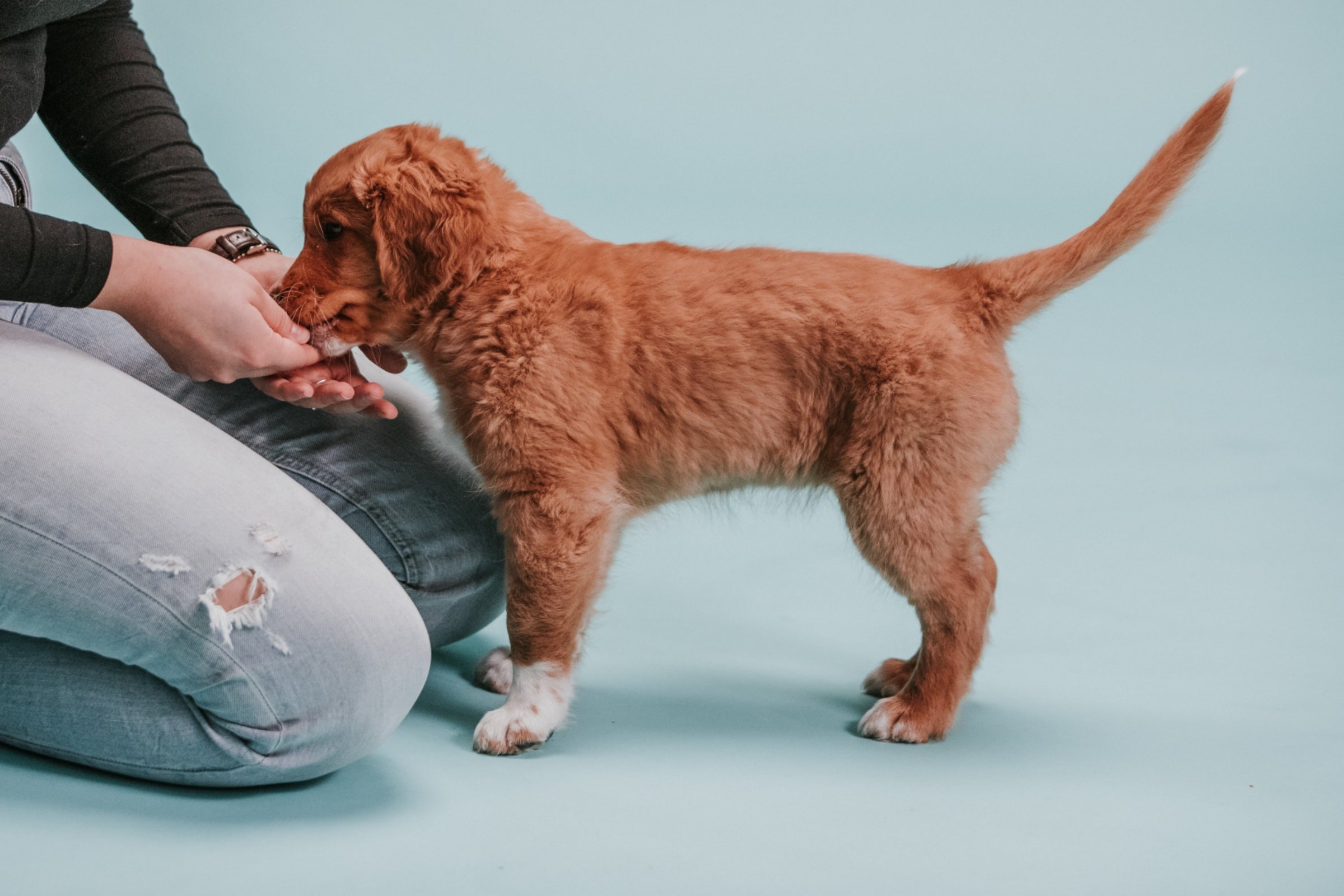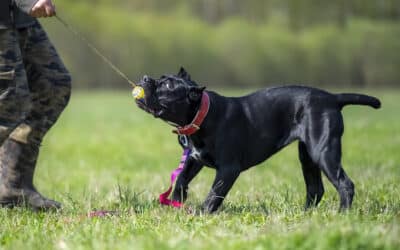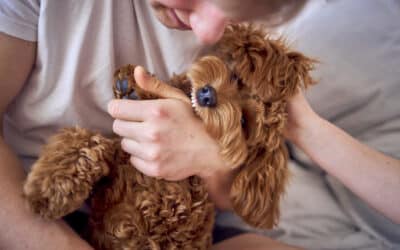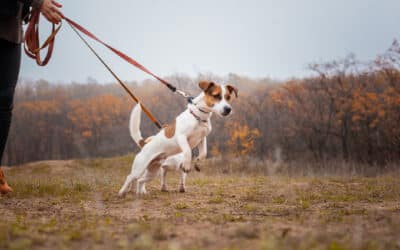When you bring your little love-nugget home, you’ll probably want to stare at them all day. While they’re sleeping, playing, eating, drinking, or waddling around. It’s called puppy parent brain, it (and the constant urge to squish their cute little face) is totally normal.
You wouldn’t think that your puppy is ready to start learning and training when they sleep 20 hours a day, zoom around for 3, and poop for 1, but they sure are! Puppies are like little sponges, and you’ll get the best results in your training the earlier you start.
The earlier you start training your puppy, the better
To your puppy, you’re the most important person in the world, and the person they look to for food, shelter, and fun. This means that every action you take from the moment you pick them up is ‘training’ them to behave a particular way.
Ideally, your puppy will do most of its early, foundational good-boy or good-girl training before 16 weeks. These 16 weeks have been researched and proven as the period where puppies are the most receptive to training, and importantly, socialization.
That being said, it’s never too late to start. If you get your puppy a little older or rescue an older dog, it’s absolutely possible (and necessary) to get their training right too. You might have to work a little harder, but you’ll still get great results and a companion for life.
What to train your puppy first
As we mentioned, every single thing you do shapes them into the dog they’ll grow up to be. From sleeping to housetraining, play, and rest – your puppy is learning all the time.
When you begin to train your puppy, remember:
- Keep things super simple
- Only spend 5 minutes or so, a few times a day
- Make it as easy as possible for your puppy to succeed
- Don’t overcomplicate what you’re asking them to do (i.e. don’t chain commands)
- Only teach them the essentials first, before any fun ‘tricks’
In terms of ‘commands’ and behaviours your puppy should learn first, let’s go through the most important ones below.
Learning their name
Learning their name is the first step in building up your puppy’s recall, and you’ve got to be 100% sure they know their name. So, of course, it should be one of the first things you work on with your puppy.
A fun fact from our OneMind dogs CEO, Noora, is that in her days of teaching in-person puppy classes, many puppies actually thought their name was ‘NO!’ rather than their actual name.
Housetraining your puppy
Stepping on puddles and presents around the home isn’t pleasant. And while we think we can keep our eye on our puppy 24/7, it’s not always possible.
Relieving themselves is a behaviour your puppy will do multiple times a day, and every time is a moment you can reinforce the behaviour you want from your puppy (like going to the correct spot).
Making contact
Making and keeping contact (eye contact, attention) with your puppy is the next step in building amazing recall and trust in the future.
It begins with teaching them their name, of course, but you can use every moment you interact with your puppy to build up their interest in making contact with you.
For example, building contact with your puppy could look like:
- Before letting them out from their puppy pen or crate, wait until they’re calm and focused on you.
- Before feeding their meals, wait until their eyes are on you before placing the bowl on the floor.
- When leaving the house for a walk or even moving between rooms, wait patiently for your puppy to look up at you before opening the door.
- When out on a walk, praising your puppy for looking up and making. eye contact with you
Socialization
Most new puppy owners hear of socialization and immediately think they’ve got to rush out and have their tiny puppy meet dozens of dogs and hundreds of people – when in reality, it’s not quite the case.
Socializing a dog actually involves more than just puppy meetups. It involves many situations, including becoming comfortable with:
- Household sounds and objects
- Different surfaces and heights
- Travelling in the car, or on public transport
- Movement and commotion around the puppy, like schools and shopping centres
- Staying focused and calm during exciting situations
Calming down & being alone
When your puppy first comes home, you’ll want to spend every waking moment with them – particularly if you’re lucky enough to take some time off work (which we absolutely recommend!).
The thing is, though, is that once the new puppy parent haze clears and life starts up again, you need to help your puppy learn to be alone, and even enjoy it! Too many puppies and dogs experience anxious feelings when their humans aren’t around, and life is much easier for you both if you start actively training this from the early days.
You can start training being alone for just a few minutes behind another door in the house, and practicing your pre-departing rituals (putting on your shoes, grabbing your keys) before working up to actually leaving the home for short periods of time.
Where to start with puppy training?
Figuring out where to start with puppy training can be daunting. There are countless resources, videos, articles and courses around, and in the end, it’s about choosing the one that works best for you and your puppy.
When we created OneMind Dogs Puppy Training, we wanted to make it as easy as possible to get started and keep the momentum going. The program has simple daily lessons with videos, step-by-step guidance and troubleshooting tips to help you both have fun and see progress quickly.
Join our newsletter below for more free puppy tips!




